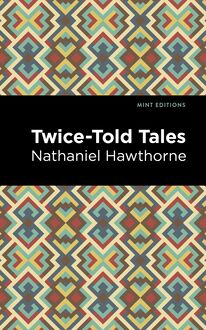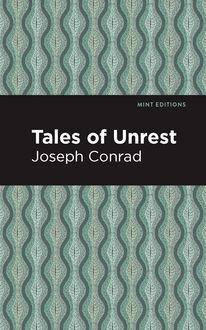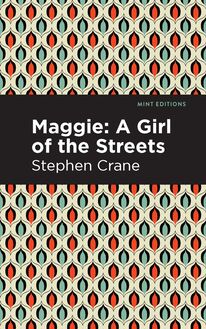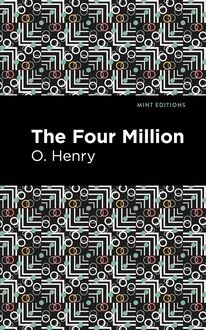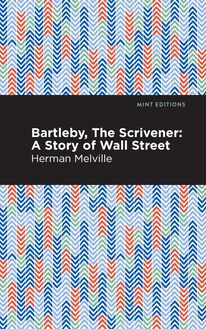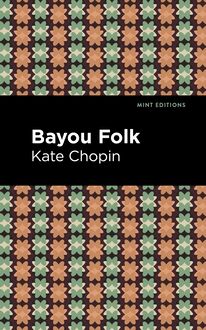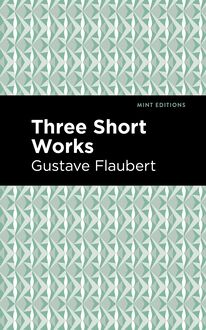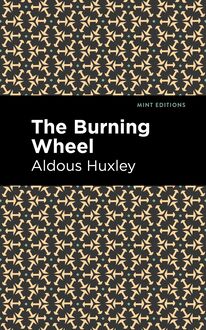-
 Univers
Univers
-
 Ebooks
Ebooks
-
 Livres audio
Livres audio
-
 Presse
Presse
-
 Podcasts
Podcasts
-
 BD
BD
-
 Documents
Documents
-
- Cours
- Révisions
- Ressources pédagogiques
- Sciences de l’éducation
- Manuels scolaires
- Langues
- Travaux de classe
- Annales de BEP
- Etudes supérieures
- Maternelle et primaire
- Fiches de lecture
- Orientation scolaire
- Méthodologie
- Corrigés de devoir
- Annales d’examens et concours
- Annales du bac
- Annales du brevet
- Rapports de stage
La lecture à portée de main
Vous pourrez modifier la taille du texte de cet ouvrage
Découvre YouScribe en t'inscrivant gratuitement
Je m'inscrisDécouvre YouScribe en t'inscrivant gratuitement
Je m'inscrisEn savoir plus
Vous pourrez modifier la taille du texte de cet ouvrage
En savoir plus

Description
Whirligigs (1910) is a collection of short stories by American writer O. Henry. Inspired by his experiences as a fugitive and in prison, these stories address themes of poverty and provincial life with humor and abundant empathy. “The Ransom of Red Chief,” the most notable of the collection’s twenty-four stories, is considered one of Henry’s finest works and has been adapted numerous times for television and film. “The Ransom of Red Chief” follows two petty criminals named Bill and Sam, who devise a plan to hold an influential citizen’s son for ransom. They kidnap Johnny Dorset, a ten-year-old boy who soon takes a liking to the pair and gives himself the name “Red Chief.” As Bill and Sam attempt to collect their ransom money, the Red Chief subjects them to tiring games and pranks, causing the two criminals to regret their hasty decision. In “The Whirligig of Life,” a story set in a frontier settlement near the Cumberland Mountains, a Justice of the Peace officiates a divorce between two quarreling settlers. He charges them five dollars for the ceremony, but when the husband realizes he has no money left for alimony, the judge looks for ways to hold onto his hard-earned wages. Whirligigs is a collection of humorous stories by O. Henry, an icon of short story writing. With a beautifully designed cover and professionally typeset manuscript, this edition of O. Henry’s Whirligigs is a classic of American literature reimagined for modern readers.
Sujets
Informations
| Publié par | Mint Editions |
| Date de parution | 07 mai 2021 |
| Nombre de lectures | 0 |
| EAN13 | 9781513274911 |
| Langue | English |
Informations légales : prix de location à la page 0,0500€. Cette information est donnée uniquement à titre indicatif conformément à la législation en vigueur.
Extrait
Whirligigs
O. Henry
Whirligigs was first published in 1923.
This edition published by Mint Editions 2020.
ISBN 9781513269917 | E-ISBN 9781513274911
Published by Mint Editions®
minteditionbooks.com
Publishing Director: Jennifer Newens
Design & Production: Rachel Lopez Metzger
Project Manager: Micaela Clark
Typesetting: Westchester Publishing Services
C ONTENTS I. T HE W ORLD AND THE D OOR II. T HE T HEORY AND THE H OUND III. T HE H YPOTHESES OF F AILURE IV. C ALLOWAY ’ S C ODE V. A M ATTER OF M EAN E LEVATION VI. “G IRL ” VII. S OCIOLOGY IN S ERGE AND S TRAW VIII. T HE R ANSOM OF R ED C HIEF IX. T HE M ARRY M ONTH OF M AY X. A T ECHNICAL E RROR XI. S UITE H OMES AND T HEIR R OMANCE XII. T HE W HIRLIGIG OF L IFE XIII. A S ACRIFICE H IT XIV. T HE R OADS WE T AKE XV. A B LACKJACK B ARGAINER XVI. T HE S ONG AND THE S ERGEANT XVII. O NE D OLLAR ’ S W ORTH XVIII. A N EWSPAPER S TORY XIX. T OMMY ’ S B URGLAR XX. A C HAPARRAL C HRISTMAS G IFT XXI. A L ITTLE L OCAL C OLOUR XXII. G EORGIA ’ S R ULING XXIII. B LIND M AN ’ S H OLIDAY XXIV. M ADAME B O -P EEP , OF THE R ANCHES
I
T HE W ORLD AND THE D OOR
A favourite dodge to get your story read by the public is to assert that it is true, and then add that Truth is stranger than Fiction. I do not know if the yarn I am anxious for you to read is true; but the Spanish purser of the fruit steamer El Carrero swore to me by the shrine of Santa Guadalupe that he had the facts from the U. S. vice-consul at La Paz—a person who could not possibly have been cognizant of half of them.
As for the adage quoted above, I take pleasure in puncturing it by affirming that I read in a purely fictional story the other day the line: “ ‘Be it so,’ said the policeman.” Nothing so strange has yet cropped out in Truth.
W HEN H. F ERGUSON H EDGES , MILLIONAIRE PROMOTER , investor and man-about-New-York, turned his thoughts upon matters convivial, and word of it went “down the line,” bouncers took a precautionary turn at the Indian clubs, waiters put ironstone china on his favourite tables, cab drivers crowded close to the curbstone in front of all-night caf é s, and careful cashiers in his regular haunts charged up a few bottles to his account by way of preface and introduction.
As a money power a one-millionaire is of small account in a city where the man who cuts your slice of beef behind the free-lunch counter rides to work in his own automobile. But Hedges spent his money as lavishly, loudly and showily as though he were only a clerk squandering a week’s wages. And, after all, the bartender takes no interest in your reserve fund. He would rather look you up on his cash register than in Bradstreet.
On the evening that the material allegation of facts begins, Hedges was bidding dull care begone in the company of five or six good fellows—acquaintances and friends who had gathered in his wake.
Among them were two younger men—Ralph Merriam, a broker, and Wade, his friend.
Two deep-sea cabmen were chartered. At Columbus Circle they hove to long enough to revile the statue of the great navigator, unpatriotically rebuking him for having voyaged in search of land instead of liquids. Midnight overtook the party marooned in the rear of a cheap caf é far uptown.
Hedges was arrogant, overriding and quarrelsome. He was burly and tough, iron-gray but vigorous, “good” for the rest of the night. There was a dispute—about nothing that matters—and the five-fingered words were passed—the words that represent the glove cast into the lists. Merriam played the r ô le of the verbal Hotspur.
Hedges rose quickly, seized his chair, swung it once and smashed wildly down at Merriam’s head. Merriam dodged, drew a small revolver and shot Hedges in the chest. The leading roysterer stumbled, fell in a wry heap, and lay still.
Wade, a commuter, had formed that habit of promptness. He juggled Merriam out a side door, walked him to the corner, ran him a block and caught a hansom. They rode five minutes and then got out on a dark corner and dismissed the cab. Across the street the lights of a small saloon betrayed its hectic hospitality.
“Go in the back room of that saloon,” said Wade, “and wait. I’ll go find out what’s doing and let you know. You may take two drinks while I am gone—no more.”
At ten minutes to one o’clock Wade returned. “Brace up, old chap,” he said. “The ambulance got there just as I did. The doctor says he’s dead. You may have one more drink. You let me run this thing for you. You’ve got to skip. I don’t believe a chair is legally a deadly weapon. You’ve got to make tracks, that’s all there is to it.”
Merriam complained of the cold querulously, and asked for another drink. “Did you notice what big veins he had on the back of his hands?” he said. “I never could stand—I never could—”
“Take one more,” said Wade, “and then come on. I’ll see you through.”
Wade kept his promise so well that at eleven o’clock the next morning Merriam, with a new suit case full of new clothes and hair-brushes, stepped quietly on board a little 500-ton fruit steamer at an East River pier. The vessel had brought the season’s first cargo of limes from Port Limon, and was homeward bound. Merriam had his bank balance of $2,800 in his pocket in large bills, and brief instructions to pile up as much water as he could between himself and New York. There was no time for anything more.
From Port Limon Merriam worked down the coast by schooner and sloop to Colon, thence across the isthmus to Panama, where he caught a tramp bound for Callao and such intermediate ports as might tempt the discursive skipper from his course.
It was at La Paz that Merriam decided to land—La Paz the Beautiful, a little harbourless town smothered in a living green ribbon that banded the foot of a cloud-piercing mountain. Here the little steamer stopped to tread water while the captain’s dory took him ashore that he might feel the pulse of the cocoanut market. Merriam went too, with his suit case, and remained.
Kalb, the vice-consul, a Gr æ co-Armenian citizen of the United States, born in Hessen-Darmstadt, and educated in Cincinnati ward primaries, considered all Americans his brothers and bankers. He attached himself to Merriam’s elbow, introduced him to every one in La Paz who wore shoes, borrowed ten dollars and went back to his hammock.
There was a little wooden hotel in the edge of a banana grove, facing the sea, that catered to the tastes of the few foreigners that had dropped out of the world into the triste Peruvian town. At Kalb’s introductory: “Shake hands with—,” he had obediently exchanged manual salutations with a German doctor, one French and two Italian merchants, and three or four Americans who were spoken of as gold men, rubber men, mahogany men—anything but men of living tissue.
After dinner Merriam sat in a corner of the broad front galeria with Bibb, a Vermonter interested in hydraulic mining, and smoked and drank Scotch “smoke.” The moonlit sea, spreading infinitely before him, seemed to separate him beyond all apprehension from his old life. The horrid tragedy in which he had played such a disastrous part now began, for the first time since he stole on board the fruiter, a wretched fugitive, to lose its sharper outlines. Distance lent assuagement to his view. Bibb had opened the flood-gates of a stream of long-dammed discourse, overjoyed to have captured an audience that had not suffered under a hundred repetitions of his views and theories.
“One year more,” said Bibb, “and I’ll go back to God’s country. Oh, I know it’s pretty here, and you get dolce far niente handed to you in chunks, but this country wasn’t made for a white man to live in. You’ve got to have to plug through snow now and then, and see a game of baseball and wear a stiff collar and have a policeman cuss you. Still, La Paz is a good sort of a pipe-dreamy old hole. And Mrs. Conant is here. When any of us feels particularly like jumping into the sea we rush around to her house and propose. It’s nicer to be rejected by Mrs. Conant than it is to be drowned. And they say drowning is a delightful sensation.”
“Many like her here?” asked Merriam.
“Not anywhere,” said Bibb, with a comfortable sigh. “She’s the only white woman in La Paz. The rest range from a dappled dun to the colour of a b-flat piano key. She’s been here a year. Comes from—well, you know how a woman can talk—ask ’em to say ‘string’ and they’ll say ‘crow’s foot’ or ‘cat’s cradle.’ Sometimes you’d think she was from Oshkosh, and again from Jacksonville, Florida, and the next day from Cape Cod.”
“Mystery?” ventured Merriam.
“M—well, she looks it; but her talk’s translucent enough. But that’s a woman. I suppose if the Sphinx were to begin talking she’d merely say: ‘Goodness me! more visitors coming for dinner, and nothing to eat but the sand which is here.’ But you won’t think about that when you meet her, Merriam. You’ll propose to her too.”
To make a hard story soft, Merriam did meet her and propose to her. He found her to be a woman in black with hair the colour of a bronze turkey’s wings, and mysterious, remembering eyes that—well, that looked as if she might have been a trained nurse looking on when Eve was created. Her words and manner, though, were translucent, as Bibb had said. She spoke, vaguely, of friends in California and some of the lower parishes in Louisiana. The tropical climate and indolent life suited her; she had thought of buying an orange grove later on; La Paz, all in all, charmed her.
Merriam’s courtship of the Sphinx lasted three months, although be did not know that he was courting her. He was using her as an antidote for remorse, until he found, too late, that he had acquired the habit. During that time he had received no news from home. Wade did not know where he was; and he was not sure of Wade’s exact address, and was afraid to write. He thought he had better let matters rest as they were for a while.
One afternoon he and Mrs. Conant hired t
-
 Univers
Univers
-
 Ebooks
Ebooks
-
 Livres audio
Livres audio
-
 Presse
Presse
-
 Podcasts
Podcasts
-
 BD
BD
-
 Documents
Documents
-
Jeunesse
-
Littérature
-
Ressources professionnelles
-
Santé et bien-être
-
Savoirs
-
Education
-
Loisirs et hobbies
-
Art, musique et cinéma
-
Actualité et débat de société
-
Jeunesse
-
Littérature
-
Ressources professionnelles
-
Santé et bien-être
-
Savoirs
-
Education
-
Loisirs et hobbies
-
Art, musique et cinéma
-
Actualité et débat de société
-
Actualités
-
Lifestyle
-
Presse jeunesse
-
Presse professionnelle
-
Pratique
-
Presse sportive
-
Presse internationale
-
Culture & Médias
-
Action et Aventures
-
Science-fiction et Fantasy
-
Société
-
Jeunesse
-
Littérature
-
Ressources professionnelles
-
Santé et bien-être
-
Savoirs
-
Education
-
Loisirs et hobbies
-
Art, musique et cinéma
-
Actualité et débat de société
- Cours
- Révisions
- Ressources pédagogiques
- Sciences de l’éducation
- Manuels scolaires
- Langues
- Travaux de classe
- Annales de BEP
- Etudes supérieures
- Maternelle et primaire
- Fiches de lecture
- Orientation scolaire
- Méthodologie
- Corrigés de devoir
- Annales d’examens et concours
- Annales du bac
- Annales du brevet
- Rapports de stage


